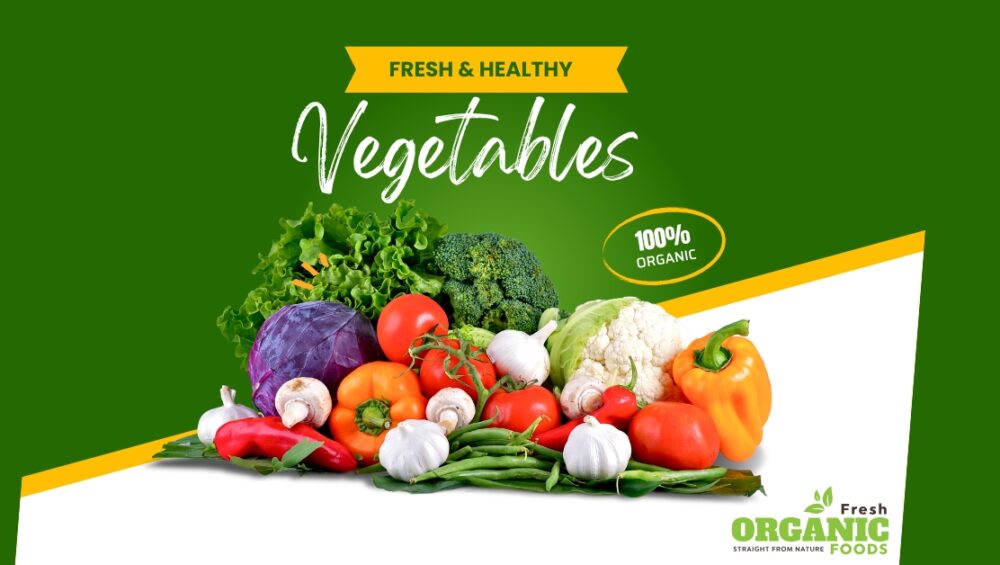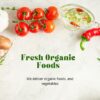Over the past decade, Bangladesh has witnessed a remarkable transformation in its food landscape. Among the many shifts, one trend stands out clearly — the growing popularity of organic food. What was once a niche interest for a small group of health-conscious individuals has now become a widespread movement. From rural farms to urban supermarkets, the organic food culture in Bangladesh is gaining momentum, reshaping how people think about health, agriculture, and sustainability.
In this blog, we’ll explore the factors driving this change, the benefits of organic food, the challenges faced by farmers and consumers, and how this movement is shaping the future of food in Bangladesh.
What Is Organic Food?
Organic food refers to produce grown without the use of synthetic pesticides, fertilizer’s, genetically modified organisms (GMOs), antibiotics, or growth hormones. Instead, organic farming relies on natural processes and materials to nurture the soil and crops. This method not only protects the environment but also produces food that is considered safer and more nutritious.
In Bangladesh, organic food often includes rice, vegetables, fruits, pulses, and even dairy products produced through eco-friendly practices. It’s not just about what’s not used in farming, it’s also about restoring traditional, sustainable agricultural methods that respect nature.
Why Is Organic Food Gaining Popularity in Bangladesh?
1. Health Consciousness on the Rise
As urbanization increases and lifestyles become more hectic, many Bangladeshis are becoming more aware of the impact of food on their health. Reports of harmful pesticide residues and chemical contamination in conventional produce have alarmed the public. As a result, consumers are actively seeking safer, more wholesome alternatives.
Organic food is perceived as a healthier option, free from toxic chemicals, rich in nutrients, and often fresher than conventionally grown produce. This awareness has led to a surge in demand, especially in urban areas like Dhaka, Chittagong, and Sylhet.
2. Environmental Concerns
Bangladesh faces significant environmental challenges, from soil degradation to water pollution. Organic farming is viewed as a solution that promotes biodiversity, enhances soil fertility, and reduces pollution.
Consumers and activists alike are beginning to understand that the way we grow our food affects the environment. Supporting organic farming helps protect ecosystems, reduce carbon emissions, and ensure long-term food security.
3. Support from NGOs and Local Initiatives
Several non-governmental organization’s (NGOs) and community-based groups in Bangladesh have been instrumental in promoting organic farming. They provide training, access to organic seeds, and help farmers transition from conventional to organic practices.
Projects like Shisuk, UBINIG, and Nayakrishi Andolon have empowered farmers, particularly women, to adopt organic methods. These grassroots movements are helping to build a more resilient and self-sufficient agricultural system.
4. Changing Consumer Habits
With rising disposable incomes and better access to information through the internet and social media, consumers are becoming more selective about what they eat. Organic products are increasingly seen as a lifestyle choice — one that reflects values of health, sustainability, and ethical consumption.
Urban organic markets, e-commerce platforms, and home delivery services are making organic food more accessible than ever before.
Benefits of Organic Food
Let’s take a closer look at why organic food is being embraced across Bangladesh:
✅ Health Benefits
- Free from harmful chemicals: Organic produce reduces the risk of pesticide-related illnesses and long-term health issues.
- More nutrients: Studies suggest organic fruits and vegetables can have higher levels of certain vitamins, antioxidants, and minerals.
- No GMOs: Organic standards prohibit genetically modified crops, which some people prefer to avoid.
✅ Environmental Benefits
- Improved soil health: Organic practices nourish the soil with compost and natural fertilizer’s, preserving its fertility.
- Water conservation: Organic farming uses techniques that reduce water usage and prevent pollution of rivers and ponds.
- Biodiversity protection: It encourages crop diversity and protects beneficial insects and pollinators.
✅ Social and Economic Impact
- Better income for farmers: Organic products often sell at a premium, helping small-scale farmers earn more.
- Local empowerment: Community-supported agriculture and farmer-to-consumer models strengthen local economies.
- Food security: Organic farming builds resilient food systems that are less dependent on imported chemicals and inputs.
Challenges in the Growth of Organic Food in Bangladesh
While the organic movement is gaining ground, it still faces several obstacles.
1. Lack of Certification and Regulation
- One of the biggest hurdles is the absence of a robust organic certification system in Bangladesh. Without official labelling and inspection, it’s hard for consumers to trust whether a product is truly organic.
- Establishing national organic standards and certification authorities will be crucial in building consumer confidence and encouraging ethical practices.
2. Limited Awareness in Rural Areas
- While awareness is growing in cities, many rural communities still lack knowledge about organic methods and their benefits. Traditional chemical farming is deeply rooted, and transitioning to organic requires time, training, and support.
3. Higher Costs
- Organic farming often involves higher labor and production costs. Without subsidies or market incentives, organic products tend to be more expensive than conventional ones, making them less accessible to low-income consumers.
4. Distribution and Storage Issues
Organic produce is perishable and requires proper storage and quick transportation. The lack of cold chain infrastructure and efficient logistics can lead to wastage and limit the reach of organic products.
The Role of E-commerce and Urban Markets
In recent years, several startups and online platforms have emerged to meet the growing demand for organic food in Bangladesh. Companies like Fresh Organic Foods, Khaas Food, Shuddho Krishi, and Green Grocery offer doorstep delivery of organic produce.
These platforms often partner directly with organic farmers, ensuring fair trade and fresh supply. They also play a vital role in educating consumers, showcasing the benefits of organic living through blogs, videos, and customer stories.
Urban organic markets are also becoming popular. Weekend farmers’ markets and pop-up events in Dhaka and Chattogram are giving small farmers a chance to connect directly with consumers, creating trust and transparency.
Government Support and Policy Outlook
The Government of Bangladesh has acknowledged the potential of organic agriculture and its role in achieving food safety and sustainability. However, more concrete steps are needed.
Key areas for policy development:
- Introduce national organic standards and certification bodies
- Provide training and financial incentives for organic farmers
- Support research and innovation in sustainable agriculture
- Invest in cold chain and logistics infrastructure
- Promote organic food awareness campaigns
By integrating organic agriculture into national development plans, Bangladesh can boost rural incomes, improve health outcomes, and build a more sustainable food system.
The Future of Organic Food in Bangladesh
As awareness spreads and infrastructure improves, the organic food movement in Bangladesh is set to grow even further. The next steps include:
- Expanding access to affordable organic products
- Strengthening supply chains
- Involving more youth and women in organic entrepreneurship
- Educating the next generation about sustainable eating
With the right support, organic agriculture could become a cornerstone of Bangladesh’s journey toward a healthier, greener future.
Conclusion
The rise of organic food culture in Bangladesh is not just a trend — it’s a transformation. From urban consumers to rural farmers, people are beginning to realize that what we eat matters. Fresh Organic Foods represents a return to our roots, a respect for nature, and a commitment to wellness.
Whether you’re a consumer seeking healthier options or a farmer looking to make a positive change, now is the time to be part of this organic revolution. Bangladesh is sowing the seeds of a sustainable future — and every choice we make at the dinner table helps it grow.







